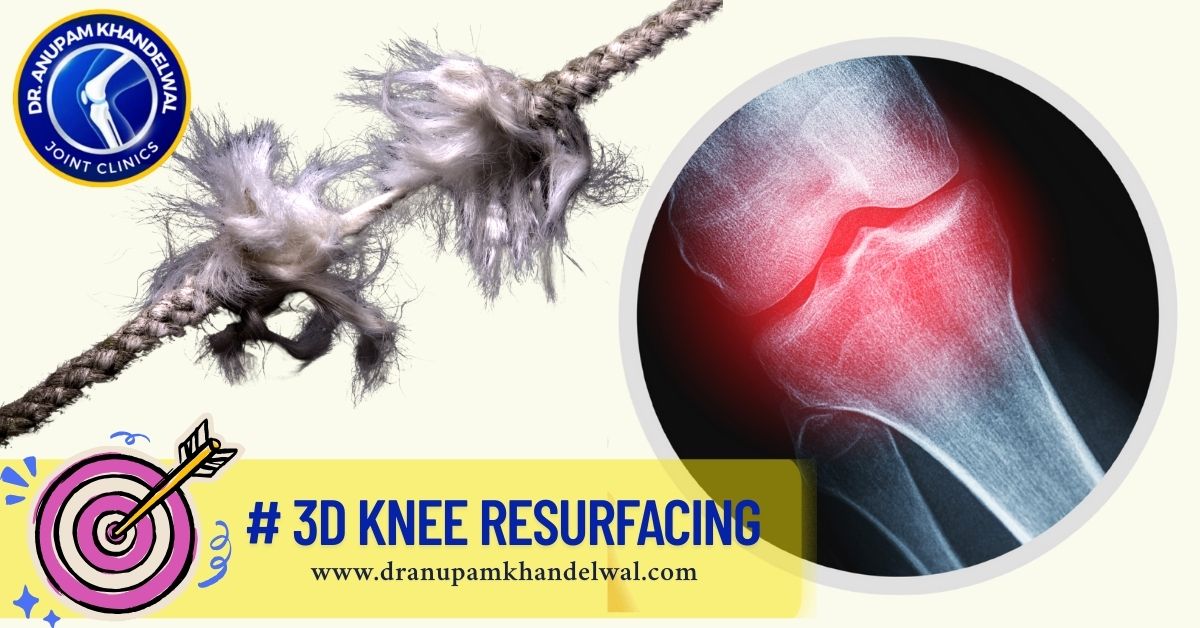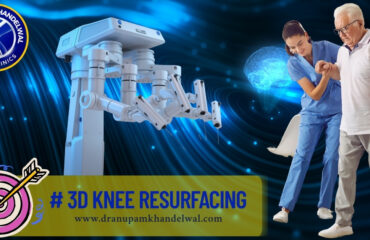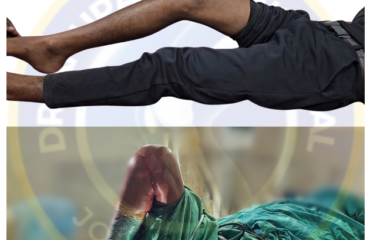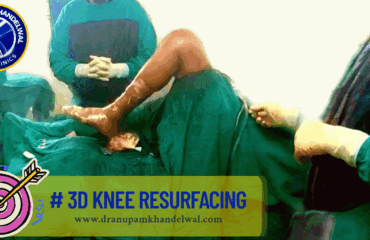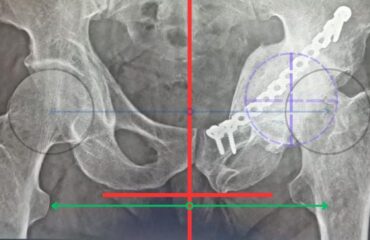By Dr. Anupam Khandelwal | Joint Replacement surgeon
During my training in MGM medical college, Indore, I used to think about this question a lot. Why are knees prone to get worn out ?
👋 Introduction
Your knees are one of the most vital—and most vulnerable—joints in your body. Whether you’re walking, sitting, running, or simply standing, your knees are hard at work. But over time, many people experience pain, stiffness, or even loss of mobility. Why does this happen?
Let’s take a closer look at why knees wear out and what you can do about it.
🦴 Understanding Knee Anatomy
The knee is a complex joint made up of:
- Bones: Femur (thighbone), Tibia (shinbone), and Patella (kneecap)
- Cartilage: Acts as a cushion to allow smooth movement
- Ligaments & Tendons: Hold the joint together and provide stability
- Synovial Fluid: Lubricates the joint
As we age or due to certain stressors, this intricate system starts to break down—leading to wear and tear.
⚠️ Common Reasons Knees Get Worn Out
1. Natural Aging
As you age, cartilage naturally thins, and the lubricating fluid decreases—leading to friction, pain, and reduced movement.
2. Excess Weight
Carrying extra weight puts 4 to 6 times more pressure on your knees. Over time, this speeds up cartilage breakdown.
3. Repetitive Stress
Jobs or sports involving frequent kneeling, squatting, or jumping (like running, football, or construction work) can overstress your knees.
4. Past Injuries
Old injuries—even well-healed ones—can destabilize the joint, accelerating degeneration over time.
5. Genetic Factors
Family history plays a role. If arthritis runs in your family, you may be more prone to early knee wear.
6. Poor Posture or Mechanics
Flat feet, misaligned hips, or improper walking technique can unevenly distribute pressure on the knees.
7. Inflammatory Conditions
Diseases like rheumatoid arthritis or gout can directly damage joint cartilage.
✅ How to Keep Your Knees Healthy
Here are practical tips to protect your knees:
- 🏃♀️ Stay Active: Choose low-impact exercises like swimming, walking, or cycling.
- ⚖️ Maintain a Healthy Weight: Reduces pressure on your joints.
- 💪 Strengthen Supporting Muscles: Focus on quads, hamstrings, and glutes.
- 🧘 Improve Flexibility: Stretching and yoga can reduce stiffness.
- 🩺 Seek Early Treatment: Don’t ignore persistent pain—early care can prevent major problems.
🗨️ Final Thoughts from Dr. Khandelwal
Knee wear and tear is common, but not inevitable. With the right knowledge and care, you can reduce your risk and keep moving pain-free for years to come.
If you’re facing persistent knee discomfort, consult a specialist. Early intervention can make all the difference in maintaining your mobility and quality of life.
📞 Book a Consultation
Have questions or knee pain that’s affecting your daily life?
📍 Visit our clinic or
📅 Book an Appointment Now

